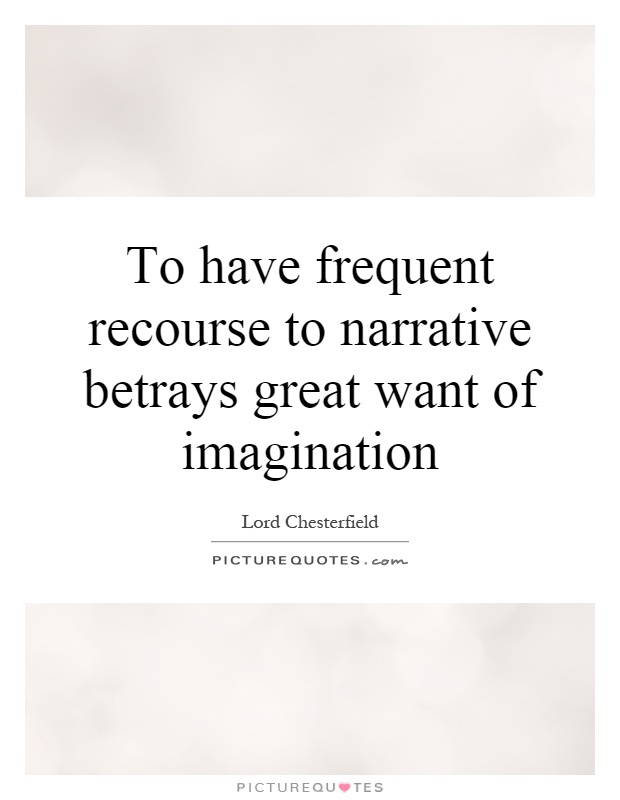To have frequent recourse to narrative betrays great want of imagination

To have frequent recourse to narrative betrays great want of imagination
Lord Chesterfield, a prominent figure in 18th-century British society, was known for his wit, charm, and keen intellect. He was a man of letters, a diplomat, and a statesman, whose letters to his son have become famous for their wisdom and insight. In one of his letters, Chesterfield wrote, “To have frequent recourse to narrative betrays great want of imagination.” This statement reflects Chesterfield’s belief in the power of imagination and creativity, and his disdain for relying on simple storytelling as a means of communication.Chesterfield believed that a truly imaginative person would not need to resort to narrative to convey their ideas or express themselves. Instead, he believed that a person of true intelligence and creativity would be able to communicate their thoughts and feelings in a more original and engaging way. Chesterfield saw narrative as a crutch for those lacking in imagination, a way to fill the gaps in their thinking or to mask their lack of originality.
Chesterfield’s statement can be seen as a critique of the prevailing literary and cultural norms of his time. In the 18th century, narrative was a popular form of storytelling, used in novels, plays, and poetry to entertain and educate the masses. Chesterfield, however, saw narrative as a form of intellectual laziness, a way to avoid the hard work of truly engaging with one’s thoughts and ideas.
Chesterfield’s belief in the importance of imagination and creativity can be seen in his own writings, which are filled with wit, humor, and insight. His letters to his son are a testament to his belief in the power of language and communication, and his ability to convey complex ideas in a clear and engaging way. Chesterfield’s letters are a masterclass in the art of persuasion and rhetoric, and they continue to be studied and admired for their elegance and intelligence.












 Friendship Quotes
Friendship Quotes Love Quotes
Love Quotes Life Quotes
Life Quotes Funny Quotes
Funny Quotes Motivational Quotes
Motivational Quotes Inspirational Quotes
Inspirational Quotes